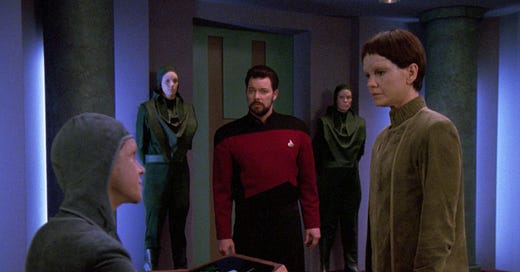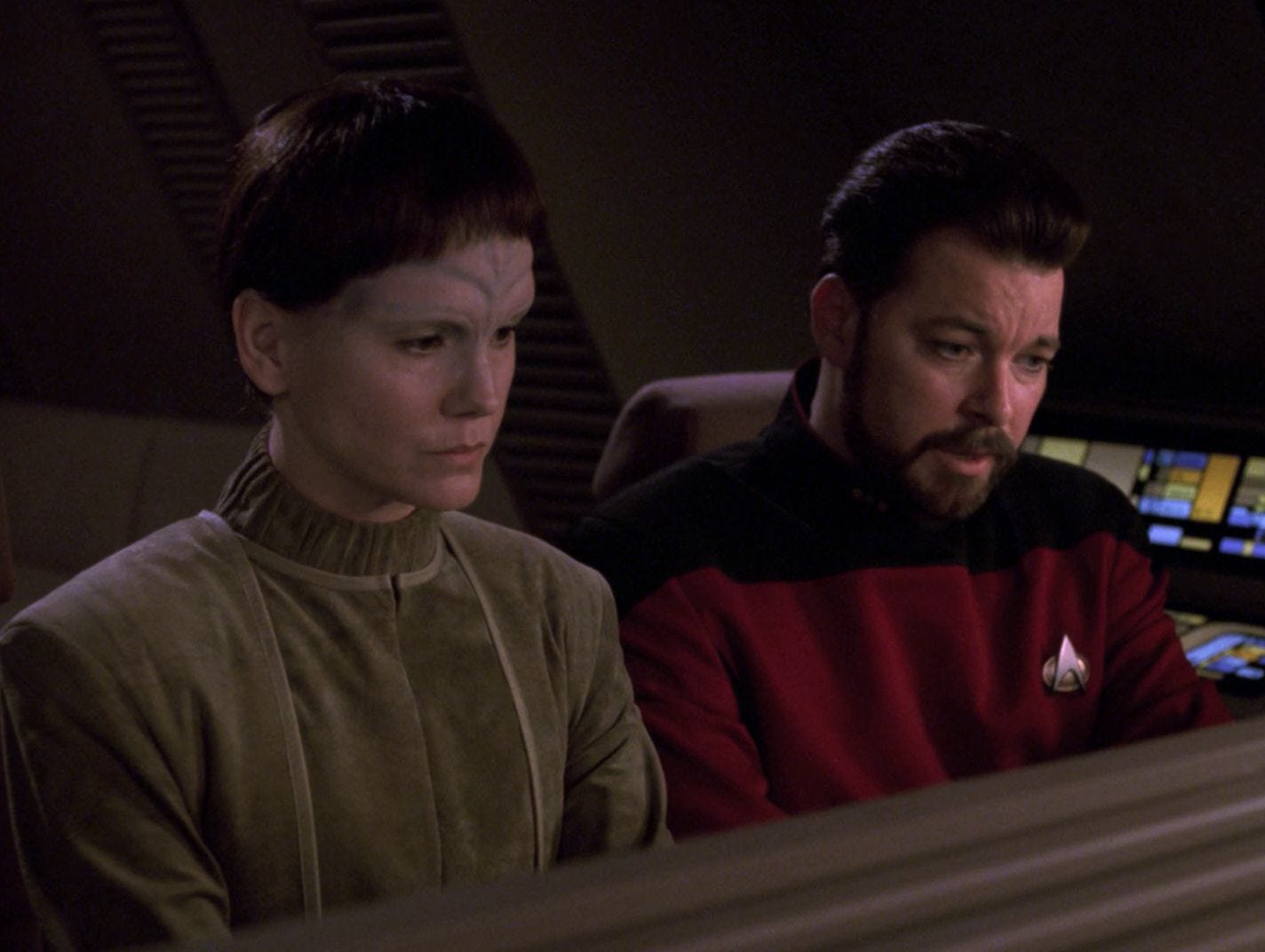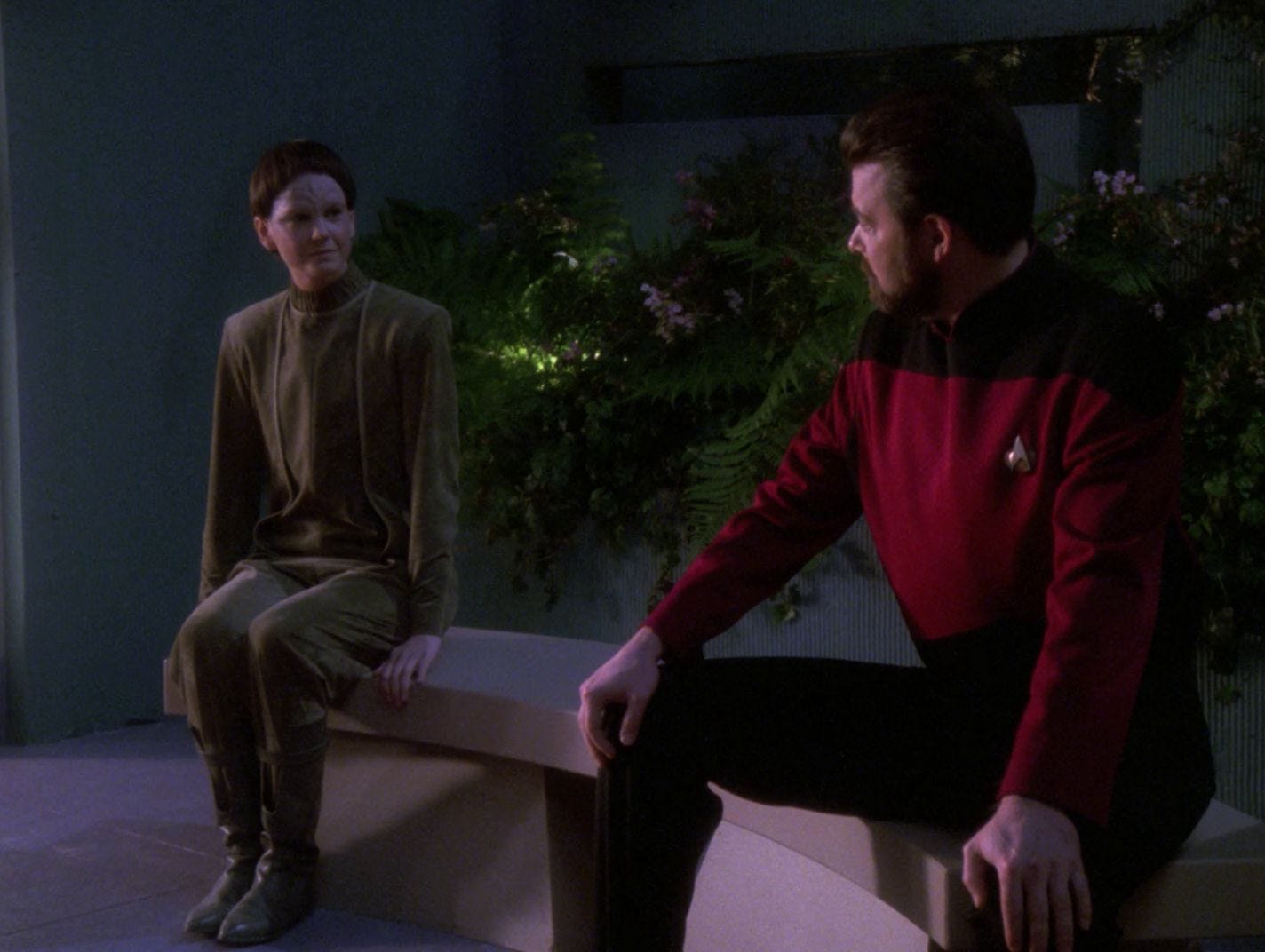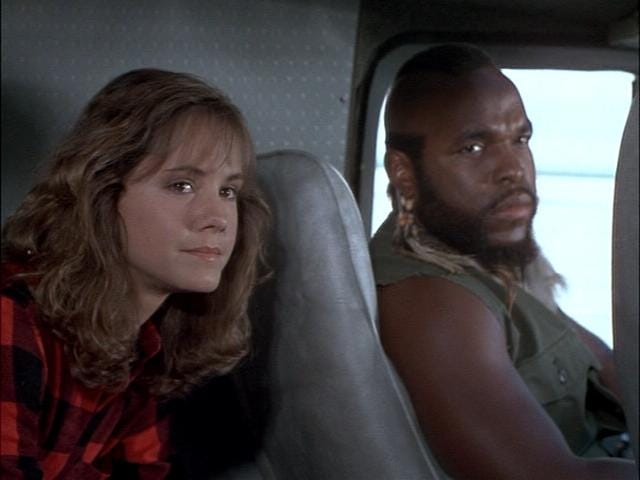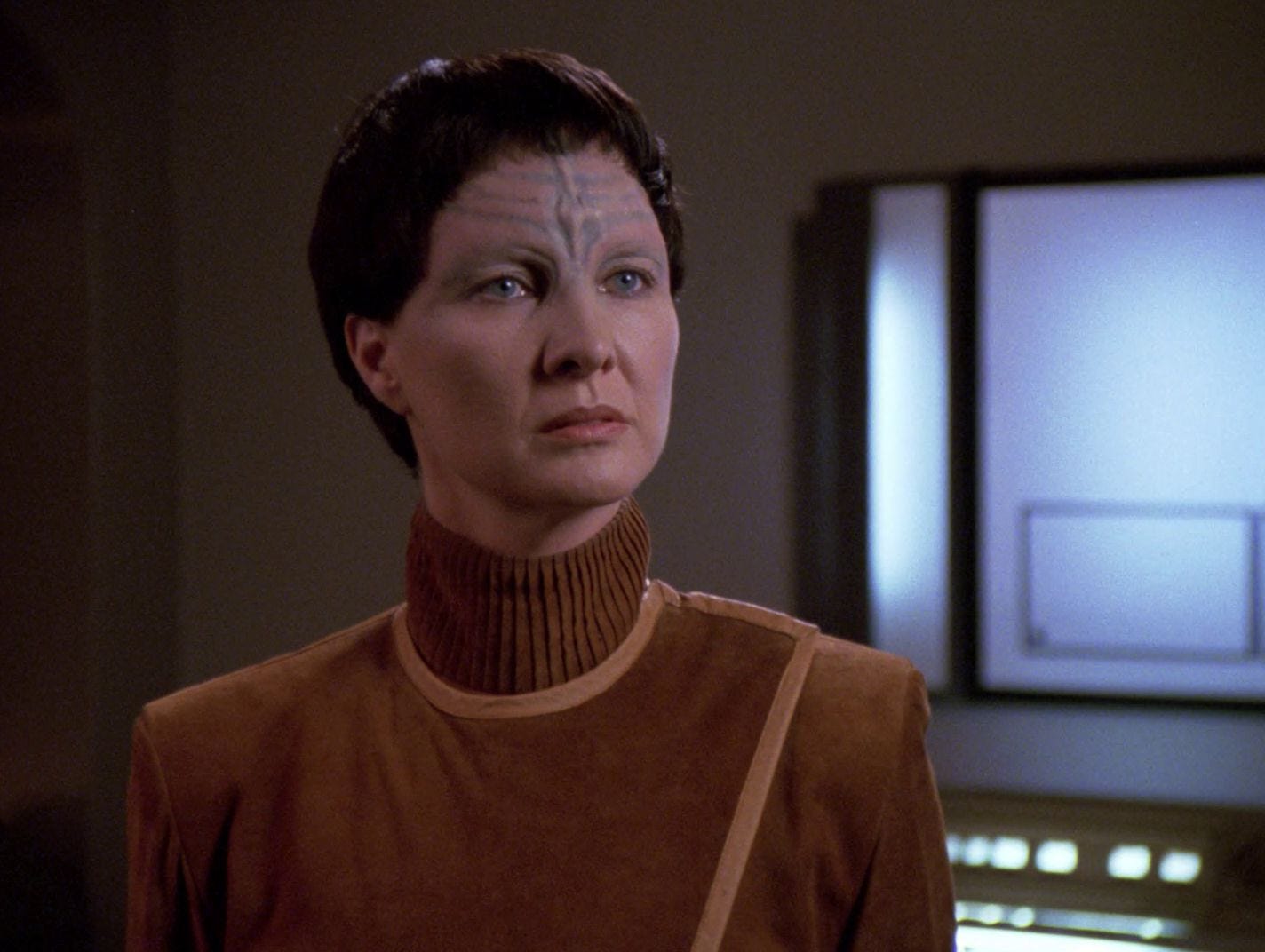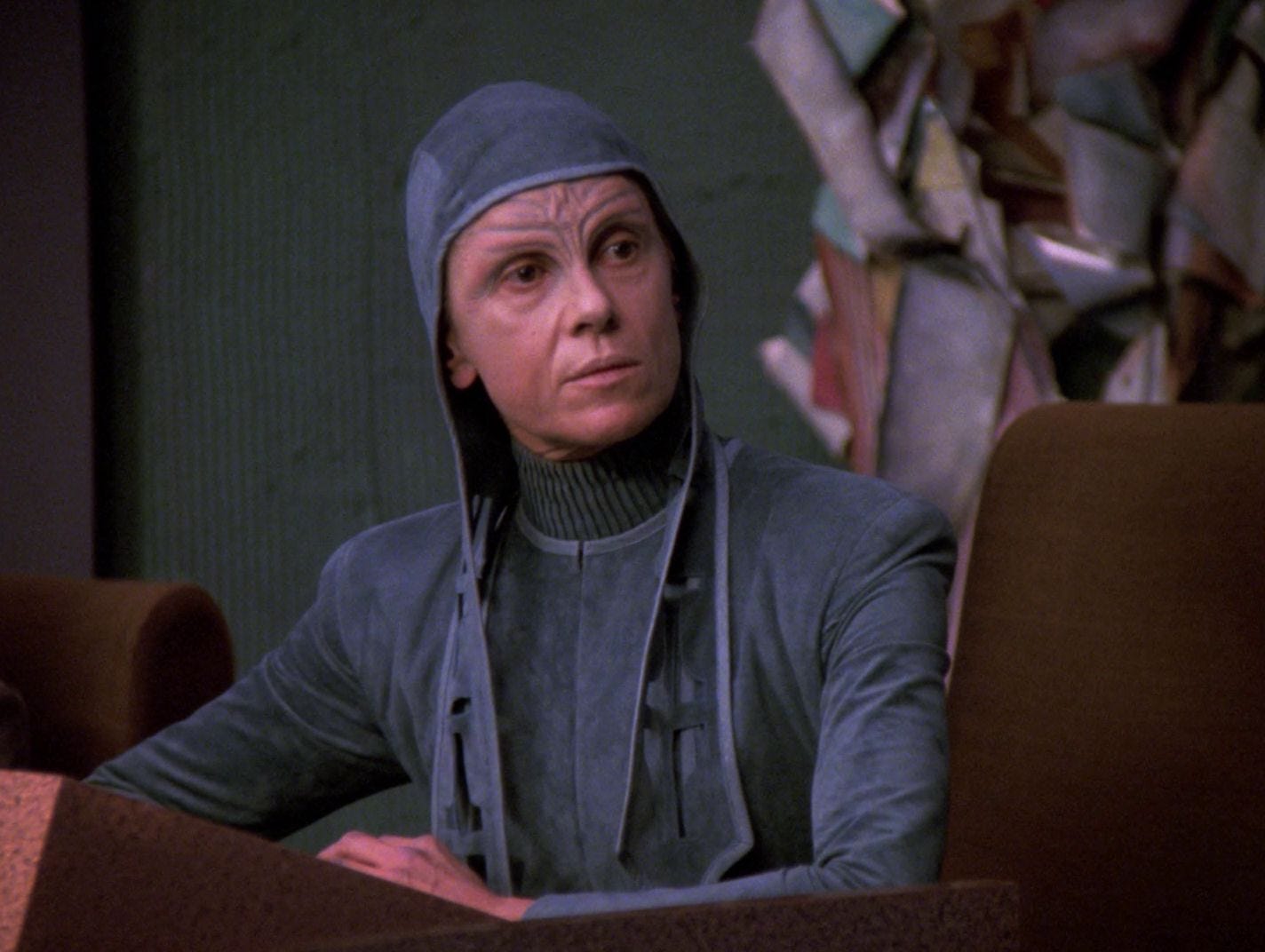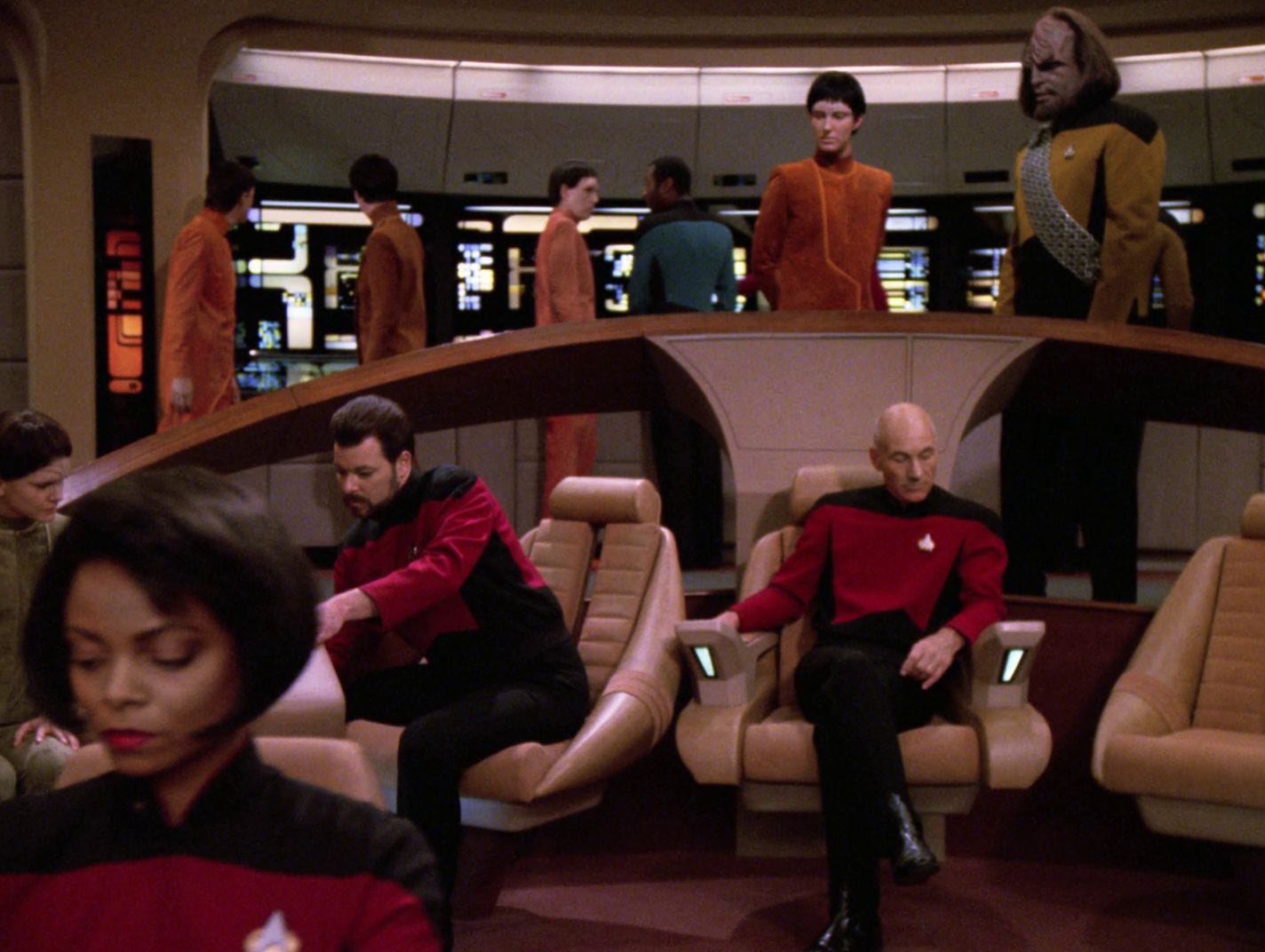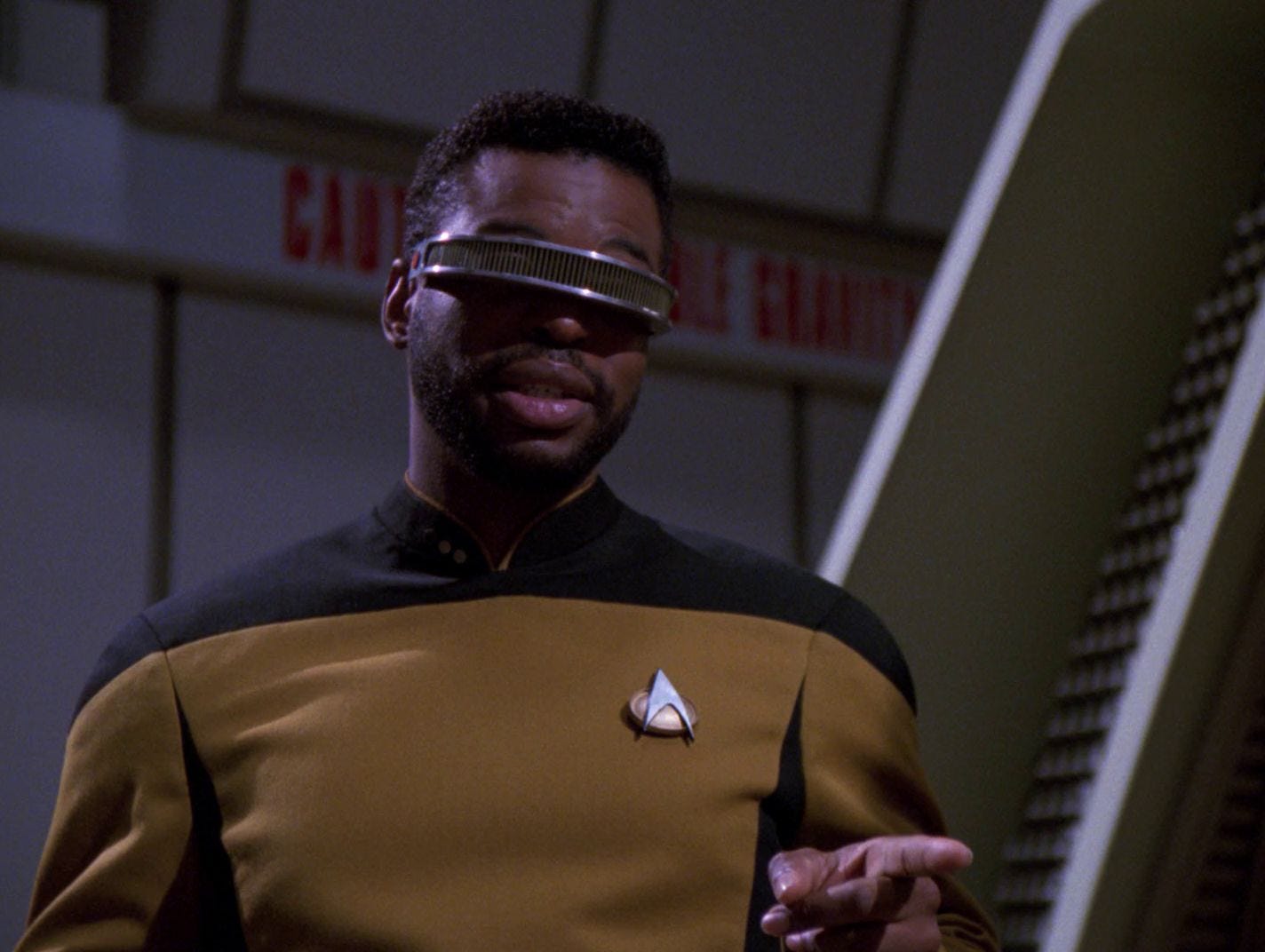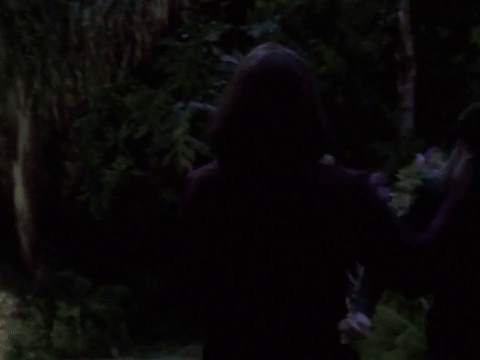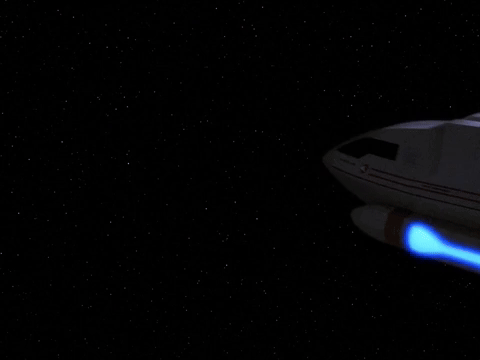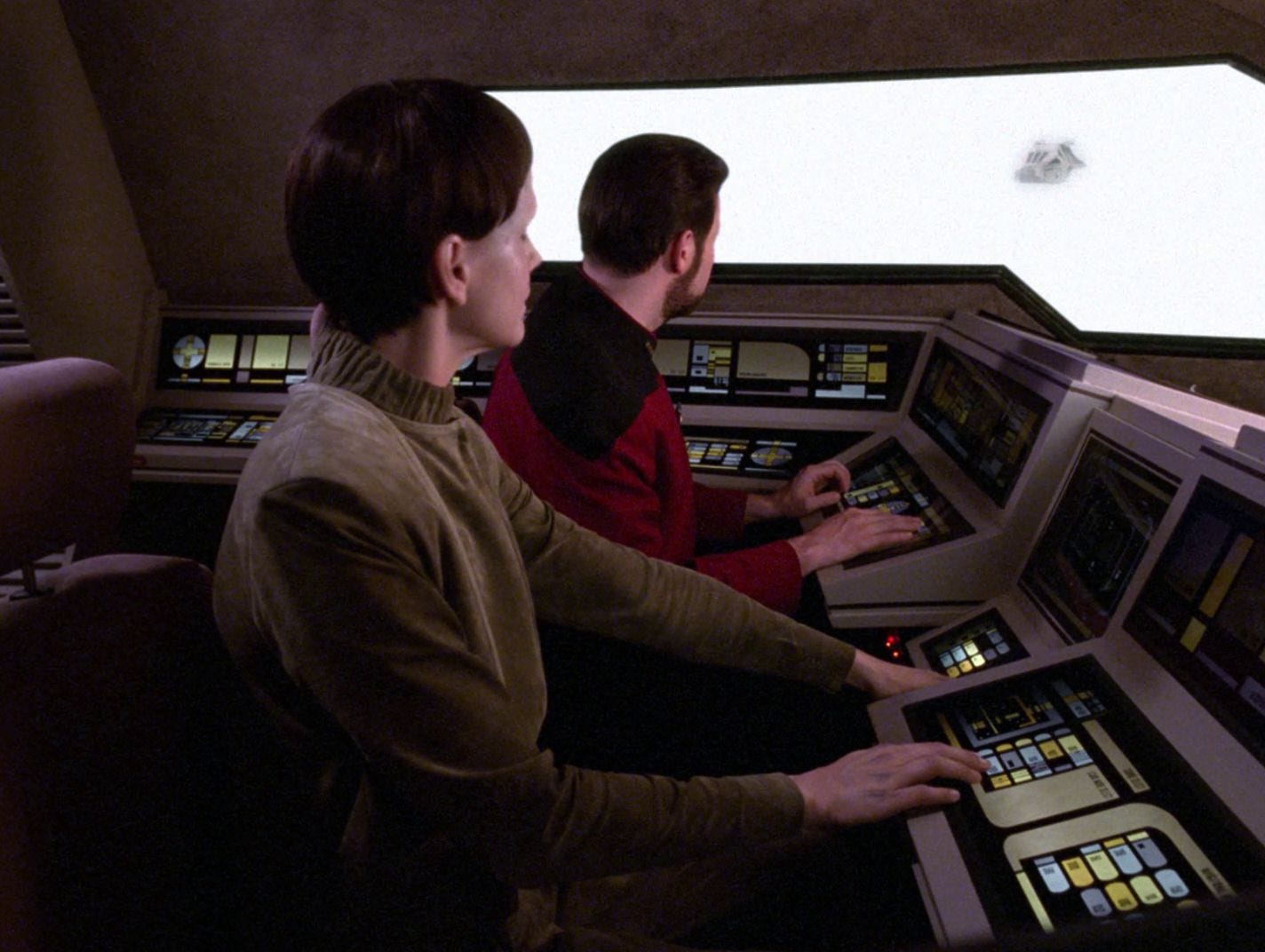The Outcast
Having run out of intergalactic women to sleep with, Riker decides to cast his love net a little further
Our boring teaser this week ends with a probe disappearing... why we are supposed to care is anyone’s guess! But this null space malarky is just our boring B-plot. Our A-plot is a little juicier. Meet the J’Naii! They’re androgynous and have no concept of gender, so don't be distracted that they are all obviously played by women (we’ll get to this).
Since Riker’s intergalactic bed post has been whittled down to a matchstick, he’s now interested in starting on the other side, and immediately gets romantically involved with a genderless shuttle pilot... The other J’Naii are not impressed. In no time at all, Riker has gone all the way from flirting into armed assault - during which Worf get to beat up some J’Naii (Worf 17, Aliens 18), which I’m sure is a great comfort to heart-broken Riker as he grumpily returns to the Enterprise in defeat, having lost his lover to gender deprogramming. Better luck next time, Commander!
Words
“Commander, tell me about your sexual organs.”
You may recall the furore behind the scenes back in season three over depicting gay lovers on Ten Forward in “The Offspring”. Well, by 1992 all the kowtowing to the network’s demands to show deference to the largely-conservative advertisers was wearing thin. Homosexuality was a political pressure point in the United States of the 1990s. Given that classic Trek had heralded black and female characters back when network executives were blatantly bigoted against, well, everyone, it stood out like a sore thumb that TNG hadn’t touched gay stories with a Bolian barge pole.
Michael Piller recalled that before his death Gene Roddenberry had been “barraged by letters”, and had discussed “the possibility of having two men hold hands in some scene”, but neither he nor Rick Berman thought this was a good play. It was a problem Berman had struggled with:
We’d been spending a lot of time wrestling with all the elements of the requests of the gay community for us to involve a gay character on the show. It got a lot of publicity both good and bad. We wrestled with a lot of different stories, and came up with a very obvious metaphor to the gay community and the intolerance they receive on this planet.
Jeri Taylor was enthusiastic about taking this story on, and the production team was pleased with how it all came together. But still, after this episode aired the angry letters poured in - and not just from social conservatives! Actually, the majority were from the gay community complaining that the story was weak sauce, and that TNG was ‘washing its hands’ over the politics of homosexuality. I can understand this complaint, and compared to thirtysomething (which was had an episode pulled from US network television for showing two gay characters talking in bed) this episode certainly wasn’t pushing the political boat out very far.
However, this issue is far more complicated than it might first appear. TNG is a sci-fi show, and while it’s well within its remit to comment on social and political issues - which this episode absolutely does do - pointless tokenism (‘representation’ as it is sometimes termed) is far more politically damaging to the cause of equality than anyone seems to realise. A token gay character in TNG would have achieved nothing except assuaging the guilt of the production team in not having touched this issue.
Coming at the topic allegorically, as this episode does, was a reasonable play - it had at least a chance of making social conservatives think about this topic, which ought to have been the political purpose of engaging with this issue at all. This pragmatic point is all too often lost in the screaming partisan politics of the United States and elsewhere. Taking sides and waving flags changes nothing, tending instead to deepen entrenched divides. It is solely encouraging people to think differently about contentious issues that can bring about meaningful change. If this episode doesn’t succeed on this front, it at least made a sincere attempt to do so.
Acting Roles
However, all that said, this episode blows up its premise by choosing to cast all the J’Naii as women. Electronically lowering their voices and dressing them up in male clothes doesn’t eliminate the problem that in an episode supposedly dealing with gay issues the big moment is Jonathan Frakes kissing an actress - something that frankly we’ve seen plenty of times since the show began.
It should have been a big red flag when the screenplay has stage directions like this one near the end of Act One that undermine the entire purpose of the storyline:
Soren takes a spoonful, touches her tongue to it. (NOTE: From this point on, for the sake of convenience, feminine pronouns will be used in reference to Soren.) She tastes it, is not displeased, takes a little more.
Even Frakes himself was annoyed:
I didn’t think they were gutsy enough to take it where they should have. Soren should have been more obviously male. We’ve gotten a lot of mail on this episode, but I’m not sure it was as good as it could have been – if they were trying to do what they call a gay episode.
Regardless, he gives a great performance here, even if the chemistry with Melinda Culea’s Soren isn’t quite there. To some extent, the screenplay inevitably leaves their relationship uncomfortable, and in that regard it does more or less work.
If you can mentally peel off the latex, you might recognise Culea as reporter Amy Allen from The A-Team, which made her career. On the back of this role she picked up recurring roles in Glitter, Family Ties, St. Elsewhere, Knots Landing, Brotherly Love, and indeed this role.
Callan White’s Krite gets to be the officious school marm who ruins Riker and Soren’s fun.
She delivers the role in a deliciously dislikeable fashion, and offers my favourite performance in this episode. Her career springboarded off replacing Shannon Eubanks as Ann Alden Forbes on the largely forgotten daytime soap Loving, but she also cropped up in L.A. Law on the back of this TNG gig. It seems that by season five the polarities had reversed: rather than TNG raiding L.A. Law’s cast, the flow of performers was decidedly in the other direction!
But wait, not so fast, since arguably our most notable guest star, Megan Cole was in L.A. Law just a few months earlier than this TNG gig!
She also gets to wear a very silly hat as Noor. Cole returns to Trek as the Romulan senator Cretak in two DS9 episodes before being replaced by Adrienne Barbeau, apparently just because Cole wasn’t available. She might have been filming an episode of E.R., a show in which she made seven appearances as Dr Upton. Anyway, she’s fine here but the role doesn’t demand much of her except opening a small jar of gravitas.
Representing the lower decks this week, we get another non-speaking appearance by Joycelyn Robinson as ‘non-speaking supernumerary’ (according to the screenplay).
And we get to marvel at LeVar Burton’s short-lived beard!
Burton prefers facial hair, but the producers wanted to emphasise his youth and thus kept him clean shaven. It seems he just decided, given the gender stereotyping fun in the screenplay, to grow out his beard for this one episode, before the producers cruelly made him trim it back again.
Then there’s Worf getting to beat up the J’Naii under the shadow of night - bringing him 8-5 against aliens this season. Go beat up some actresses, Worf!
Could he finally achieve a decisive no-nonsense winning season...? We’ll find out soon enough!
Models, Make-up, and Mattes
Watch a shuttlecraft disappear before your eyes!
Enjoy it, because there’s not much else here, although welcome back the Nenebek studio miniature, which appears against a white background to represent the J’Naii shuttle trapped in null space.
But of course, it’s not about the special effects this week, but about the clunky allegory being undercut by casting women in the J’Naii roles. Oh well, at least Worf got to beat some of them up, I suppose.


